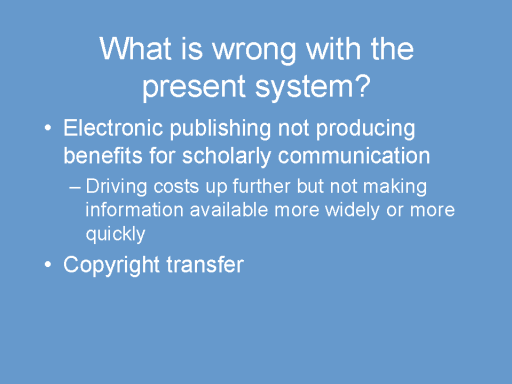Slide 4 of 22
Notes:
A lot of these issues were present in the pre-electronic world (spiralling costs, slow publication).
What is possibly different now is that in the electronic world we have greater expectations - an expectation that electronic publishing would solve some of the problems.
Instead, it is perceived to be driving costs up further but not making information available more widely or more quickly.
Heard this expressed as “research content could go further, faster, cheaper if the publishers were not in the way”.
Copyright transfer - publishers do not pay academic authors, but they often require authors to assign copyright when they submit their work; publishers therefore obtain a free benefit in which they claim copyright and they sell it back to its originators - the academic community, who incidentally also give services free for editing, refereeing.
This has always been a characteristic of schloarly journal publishing, but it has particular significance for the development of alternative electronic publishing.















